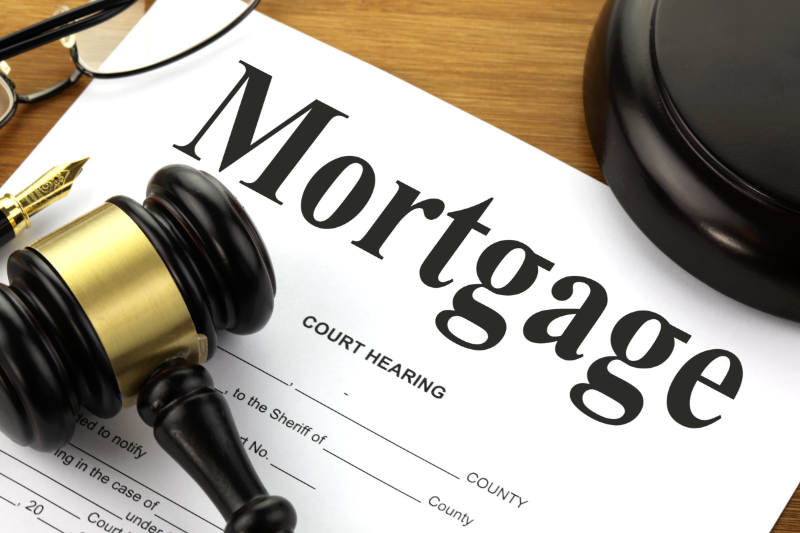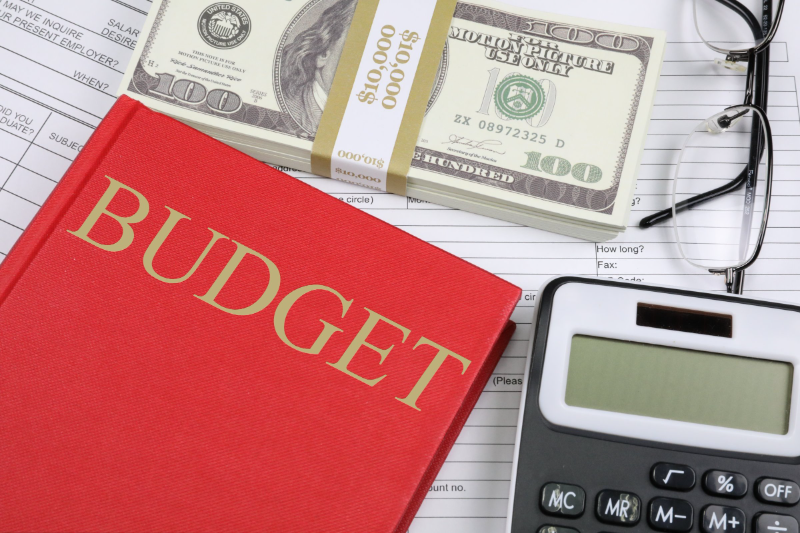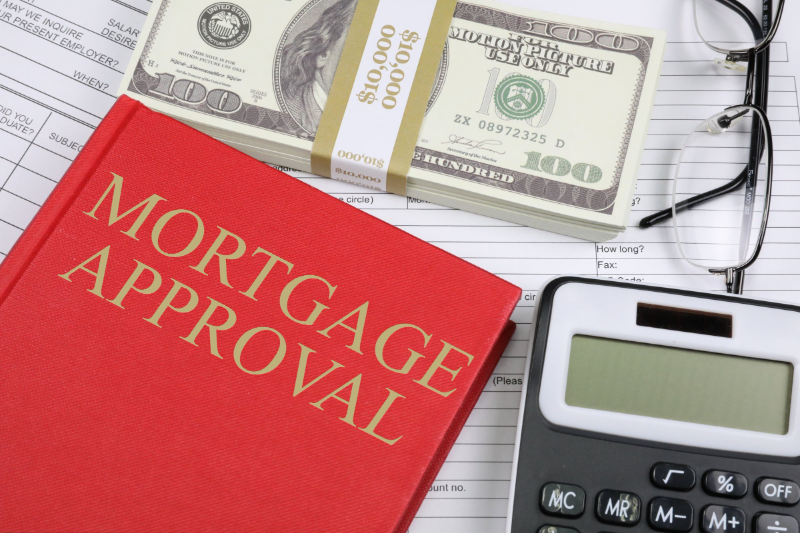If you’re a first-time home buyer, there are some essential tips to remember.
Firstly, finding the perfect home in a competitive market can be challenging but not impossible. Secondly, the location of your new home is crucial, and you don’t want to compromise on this aspect.
Thirdly, negotiation skills can be handy when buying your first home, so brush up on them. Fourthly, there are some mistakes you should avoid, such as not getting pre-approved for a mortgage.
Finally, your first home purchase can be an investment for the future if you make smart decisions, such as buying a property with potential appreciation value.
First-Time Buyers Buy Tips
Regarding home-buying, you must be prepared to make monthly mortgage payments with a mortgage broker.
Thus, as first-time homebuyers, it helps prepare yourself for financial health to avoid falling behind on payments and ruining your credit report.
Therefore, it helps to prepare early with these tips, as we have your best interest at heart.
Start Saving Early as a First-Time Homebuyer
One vital piece of advice for first-time homebuyers is to start saving early. Purchasing a home is a significant investment; the more money you can put down, the better off you’ll be.
By saving early, you’ll have more time to accumulate the necessary funds and avoid rushing the process. Additionally, starting early allows you to explore different savings options, such as a high-yield savings account or a dedicated savings plan.
With careful planning and discipline, you can make your homeownership dreams a reality. So, when it comes to tips for first-time homebuyers, you need to calculate how much mortgage money you need to buy a house.
Also, consider the recurring bills, as there are some upfront costs you must consider:
Depending on your mortgage type, the down payment can vary. If you have an excellent credit score as a first-time buyer, you only need a 3% down payment. Still, even a small one can be challenging. For example, a home of $300,000 needs a down payment of $9,000 at 3%. We recommend you use a down payment calculator and set up automatic transfers from a checking to a savings account to get started.
As with a down payment, you also have closing costs when you finalize your home loan, ranging from 2% to 6% of the loan. So, if your closing costs are $300,000, it can be between $6,000 to $18,000. Thus, you need to pay this amount in addition to your down payment. Still, in a buyer’s market, you can ask a seller to pay part of the closing costs to save on expenses like home inspection.
Also, remember to budget for your moving costs, which can run up to $2,500 when moving locally. Hence, set aside cash for home repairs, furnishings, and upgrades to prevent a high mortgage payment. Thus, having an emergency fund helps.
How Much Can You Afford
Before you check the real estate market, determine how much you spend on a new house to compare with your rent payments. A good recommendation is to use an affordability calculator to find a price range based on income, down payment, credit scores, debt, and where you want to live.
Polish Your Credit Score
Your credit score determines if you qualify for mortgage loans, which will affect the interest rates mortgage lenders offer to buy your dream home. With a higher credit score, you can get a lower interest rate, which helps to polish up your score.
Thus, get your credit report from the three main credit bureaus: TransUnion, Experian, and Equifax. Pay your bills on time and keep your credit card limit balance open. Also, as first-time buyers of your dream house, refrain from opening new credit accounts.
Doing this lets you know your available credit to ensure you can afford a home purchase without problems.
Tips For First-Time Homebuyers Mortgage Selection
When shopping for a mortgage, it’s important to research and consider all your options.
Explore Mortgage Options
When buying a home, it’s important to consider all your mortgage options. Take the time to research different loans and lenders to find the one that’s right for you. Here are the main categories:
Conventional Loan
Conventional mortgages are popular for many homebuyers when considering different mortgage options.
These loans typically offer competitive rates and a variety of repayment terms. With a conventional mortgage, you may be able to put down a smaller payment than you would with other types of loans.
However, remember that you must meet specific credit and income requirements to qualify for a conventional mortgage.
It’s important to research mortgage lenders and compare offers to find the best option for your needs. Thus, you might still need to put down a payment of 3%.
FHA Loans
Federal Housing Administration loans are for homebuyers with lower credit scores and smaller down payments. They have higher interest rates and insurance premiums than conventional loans but can be a good option if you don’t meet the strict requirements of conventional mortgages. You can expect down payments as low as 3.5%.
USDA Loans
USDA loans are designed for homebuyers in rural areas who meet certain income requirements. They offer low interest rates and no down payment, making them an attractive option for those who qualify. The best part is you do not need a down payment.
VA Loans
VA loans are an excellent option for veterans and active-duty military members looking to purchase a home. They offer competitive rates and are backed by the Department of Veterans Affairs, making them a safe and reliable choice.
Other options available are not only with the down payment terms but with the home loan terms. You can opt for a 30-year fixed-rate home loan you can pay off over 30 years. The interest rate remains the same.
The other option is a 15-year mortgage loan with a lower interest rate than the 30-year one, but your monthly payment is bigger.
Still, if you plan to stay in your dream home for only a few years, you can consider an adjustable-rate mortgage that starts with a lower fixed introductory rate but it can increase over time.
Payment Assistance Programs
For first-time homebuyers, home buyer programs are available that combine low-interest rates with down payment assistance programs for closing costs assistance. If you are in the low-income benchmark, you might even qualify for a grant you need not pay back. Alternatively, first-time buyers can get tax credits and mortgage certificates.
Compare Mortgage Lenders’ Rates and Fees
To compare mortgage rates and fees, it’s important to research multiple lenders and their offerings. Look for mortgage lenders that offer competitive rates and low fees, and consider using a mortgage agent to help you navigate the process.
Make sure to compare all aspects of the mortgage, including the best interest rate, closing costs, organization fees, and any other fees associated with the loan. This will help you find the best mortgage option for your financial situation.
A mortgage lender may offer you buy discount points fees you pay upfront to help lower the interest rate and monthly payment on the loan. Doing this makes sense if you plan to remain in the home for a long time.
In the home-buying procedure, the seller’s agent is often willing to pay some or all the buyer’s points to help close a deal.
Gather Your Paperwork For a Mortgage Approval
The best tip for home buying before you are approved for a home loan is to combine your financial records to help verify your income, debt, and assets. Thus, it helps to get the following documents ready:
Proof of your employment and income, like your tax returns, W-2s and 1099.
Statement of brokerage accounts, retirement, and bank statements.
Records of your credit score from debt payments like student loans, real estate debt, and auto loans.
Any documentation that might impact your financial health, like bankruptcy, divorce, etc.
It helps to gather these documents before the time to help keep things organized during the loan paperwork stage or a mortgage pre-approval.
Get a Mortgage Preapproval Letter
The pre-approval letter is what, for example, the FHA loan provider offers on a specific amount with specific terms. During the home buying process, the letter shows the real estate agent and home seller that you are a serious first-time buyer.
You can apply for the letter when you shop for a home. The loan officer will pull your credit score, review your documents, and help you apply with multiple lenders for the best interest rate. During this time, they will also check your credit card balances.
Tips For Home Shopping
Now that you have everything you need, it is time to do some home shopping to find your dream home.
Choose Real Estate Agents Carefully
Real estate agents who are good at what they do will scour the housing market for a home that suits your needs and monthly payments. An experienced real estate agent will guide you through the purchase price and provide closing cost assistance.
You can even get referrals from recent home buyers and interview at least a few agents. It helps to ask agents about their experience with first-time buyers and how they plan to help you find a home.
Narrow Down Your Home and Neighborhood Selection
During the home-buying process, it helps to weigh the pros and cons of looking at different homes, your lifestyle, the purchase price in the housing market, and what you can afford.
So, when looking to buy a home, an existing one costs less than buying a new construction home. Still, a brand-new home can offer you some enticing options for you to customize. Check out what it costs to build a modern home.
An affordable option is a condominium or a townhouse compared to a single-family home. Still, shared walls with your neighbors are less private, and remember to budget for the homeowners association fees when looking at these types of homes.
Like a mobile home, a manufactured home is also affordable for a tight budget. Still, you will need title insurance and title a real property with a permanent foundation when you want to finance it as a traditional mortgage.
Lastly, you have the fixer uppers or a single-family home that needs some repairs and sells for less per square foot, which is move-in ready. Still, home buyers opt for these, but you need to budget for added repairs and sometimes remodeling.
As a first-time homebuyer, consider your long-term needs and whether you need a starter or a forever home. Also, research the neighborhood from the property value, property taxes, and safety.
Stick to Your Budget
Whether you get payment assistance or not or need down payment assistance programs, it is essential to stick to your budget. As you will need to pay added homeowner’s insurance or even private mortgage insurance, we cannot stress this enough to prevent stress down the road.
As home buyers, a home loan officer might offer you more than what you can pay, or you feel pressured to spend outside your budget zone. We say take care. Hence, we recommend finding a good real estate agent who will look at properties below the price limit to help with the bidding.
Take The Opportunity of Open Houses and Walk-Throughs
If you can find 3D home tours on the real estate, you can view them and, where possible, view the home in person. When you walk into a home, open your senses, pay attention to strange odors, and look at the overall conditions of the place inside and out. Also, ask how old the plumbing to electrical wiring systems and the roof are.
Home Buying Process Tips
You should never skip the home inspection as it thoroughly assesses the building structure and the mechanical systems. With the help of inspectors doing the home inspection, they can provide you with potential problems in deciding to buy the home. So keep in mind:
A standard home inspection does not test for mold, pests, or radon. So, find out from your agent what appraisals are included and what other checks are needed.
Ensure that the inspector can access every part of the property, from the crawl spaces to the roof and basement.
You need not attend the inspection, but it helps to be there if you can.
Time to Negotiate
If you ask the seller to pay for repairs in advance, it can help lower the price to cover the cost of repairs. You can also ask the seller to help pay some of the closing costs, but keep in mind that lenders might limit the portion the seller can pay. Furthermore, your negotiation will depend on the local market, as it is tough to drive a hard bargain when more buyers are on the scene than homes for sale.
Invest in Mortgage Insurance
The lender will ask you to buy insurance before closing a deal. The insurance helps cover any repair costs or replace any belongings if damaged. Furthermore, it provides liability insurance if you are held responsible for an injury or an accident. Ensure to buy enough coverage in case the home is destroyed.
Frequently Asked Questions
A down payment on a house is a sum that a buyer pays upfront when purchasing a home. Typically, the down payment is a percentage of the home’s total cost and is paid in cash at the time of closing.
The purpose of a down payment is to reduce the lender’s risk by providing a financial stake in the property and demonstrating the buyer’s ability to save and manage money.
The down payment size required will vary depending on the type of loan, the lender’s requirements, and the buyer’s creditworthiness.
Generally, a larger down payment will result in lower monthly mortgage payments and a more favorable interest rate.
Property taxes are typically paid annually. The payment due date and deadlines may vary depending on location and local government regulations. Knowing when your property tax payments are expected is vital to avoid late fees or penalties.
Mortgage rates are those charged on a loan used to purchase a home or property. They can vary depending on various factors, including the current economy, the borrower’s credit score, and the type of loan being used. Researching and comparing mortgage rates from different lenders before choosing a loan is essential to ensure you get the best deal possible.
Conventional loans are mortgage loans not guaranteed or insured by the government. They typically require a higher credit score and a larger down payment than government-backed loans.
Conventional loans can be fixed-rate or adjustable-rate mortgages and are available for various property types, including single-family homes, condos, and multi-unit properties.
It’s essential to compare conventional loan options from different lenders to find the best terms and rates for your financial situation.
Down payment assistance is a program that provides financial help to homebuyers struggling with the down payment required for a mortgage loan.
This assistance can come in grants, loans, or deferred-payment loans that do not have to be repaid until the home is sold or refinanced. Various types of down payment assistance programs are available, each with its own eligibility criteria and funding limits.
Researching and comparing different programs is essential to find the best fit for your needs.
Home insurance is an essential factor to consider when buying a home. It provides financial protection in case of damage or loss caused by unforeseen events such as natural disasters, theft, or accidents. Knowing your investment is protected, home insurance can give you peace of mind. Researching and comparing different insurance policies is essential to find the one that best fits your needs and budget.








Comments